Your lead-acid UPS dies every few years. This constant replacement cycle is expensive and puts your operations at risk. An Omega lithium-ion UPS ends this problem for good.
Yes, an Omega lithium-ion UPS is an excellent long-term investment. It is designed to be used for a very long time, offering an 8-10 year lifespan with zero maintenance. This provides unmatched reliability and a much lower total cost of ownership.
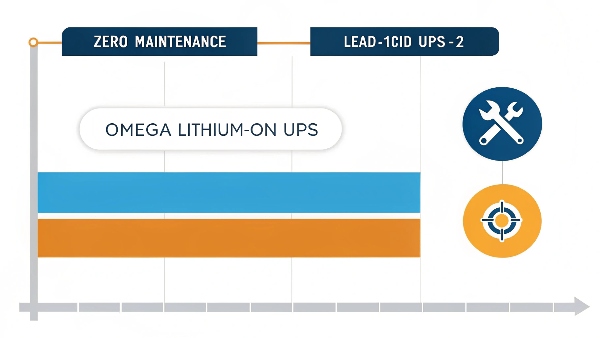
Transition Paragraph:
As an OEM manufacturer at Daopulse for over a decade, I've seen how clients' priorities have evolved. In the past, the main question was about initial price. Today, a system integrator like Mr. Li, who is responsible for a new hospital's infrastructure, asks me about long-term reliability and performance. He needs a power solution he can install once and trust for a decade. He needs to know that a lithium-ion UPS can be used for a long time. Let's dive into the questions he and other professionals ask when planning a long-term power strategy.
Why Don't All Inverters Use Lithium-Ion Batteries?
You see many cheaper inverters still sold with lead-acid batteries. This makes you wonder if lithium is truly ready for all applications. This hesitation can be a costly mistake.
The main reason was historical cost. Lithium used to be expensive. Now, prices have dropped, and the long-term value is undeniable. The market is quickly shifting, and LiFePO4 lithium is becoming the new standard for all reliable power systems.
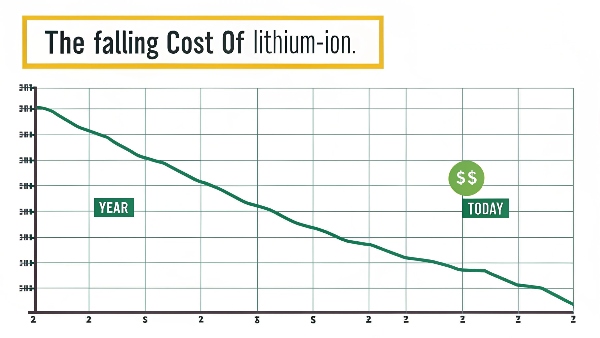
Dive deeper Paragraph:
This is a question about market transition. For a long time, lead-acid was the only game in town. It was a mature technology, and the upfront cost was low. Lithium was seen as a new, expensive alternative. But that picture has completely changed. The technology has improved dramatically, especially with the development of super-safe Lithium Iron Phosphate (LiFePO4) chemistry. At the same time, manufacturing has scaled up, which has made the price much more competitive. The most important factor is Total Cost of Ownership (TCO). A smart procurement manager now understands that buying a lead-acid system is just the first payment. They will pay for it again in 3 years through replacement batteries and labor. A lithium system is a one-time purchase. This is why a lithium-ion UPS can be used for a long time. The math now strongly favors lithium, and the entire industry is moving in this direction for new projects.
What Is the Role of a BMS in a High-Voltage UPS?
You hear technical terms like "BMS" and "HVDC." This jargon can be confusing and make you worry about system complexity and safety. But the BMS is your key to reliability.
A BMS, or Battery Management System, is the battery's brain. In a high-voltage system, it is essential for safety and longevity. It protects every cell, manages charging, and ensures the entire pack operates perfectly for years.
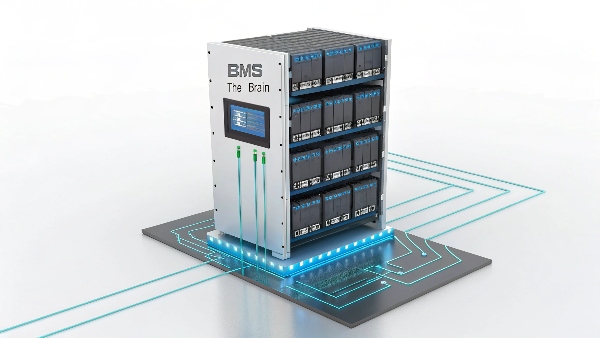
Dive deeper Paragraph:
Let's simplify this. HVDC just means High-Voltage Direct Current, which is what large UPS and Battery Energy Storage Systems (BESS) use for efficiency. In these big systems, the Battery Management System (BMS) is the most critical component. A lithium battery pack is made of many small individual cells. The BMS watches every single one. It ensures no cell is over-charged or over-drained. It keeps all the cells balanced so they work together perfectly. It also monitors temperature to prevent any issues. This active, intelligent management is what makes a lithium battery so safe and durable. A lead-acid battery has no brain; it's just a passive chemical block. The BMS is the reason a lithium-ion UPS can be used for a long time. It is the technology that guarantees a decade of safe, reliable, and maintenance-free operation.
Can I Use a 200Ah Battery to Replace a UPS Which Uses 7Ah?
Your small UPS battery has died. You think that putting in a much bigger battery will give you a longer runtime. This common mistake is dangerous and will damage your equipment.
Absolutely not. This is extremely unsafe. A UPS is an integrated system. The internal charger is designed for a 7Ah battery and cannot handle the load of a 200Ah battery. This will cause overheating and is a serious fire risk.
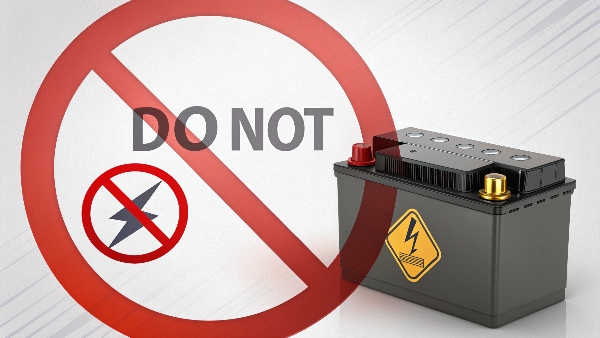
Dive deeper Paragraph:
I get this question from time to time, and my answer is always a very firm "no." It's critical to understand that a UPS1 is a complete, balanced system, not just a box with a battery inside. The internal charging circuit2 is specifically engineered for the battery it comes with. A charger designed for a small 7 Amp-hour (Ah) battery simply does not have the power to safely charge a massive 200Ah battery. Trying to do so is like trying to fill a swimming pool with a garden hose. It will put an enormous strain on the charger, causing it to overheat and likely fail, creating a significant fire hazard. You also won't get the performance you expect. For a reliable system, the battery, charger, and inverter must all be designed to work together. As an OEM/ODM manufacturer, this is our expertise. We design complete, certified systems to meet a client's specific runtime needs safely and effectively.
What Are the Different Types of Batteries for Industrial UPS?
You need to choose a battery for an industrial UPS. The options seem confusing, and picking the wrong one can lead to failure. Knowing the two main choices makes it simple.
The two main types are traditional Valve-Regulated Lead-Acid (VRLA) and modern Lithium Iron Phosphate (LiFePO4). For any new industrial project, LiFePO4 is the superior choice due to its long life, safety, and much lower total cost.
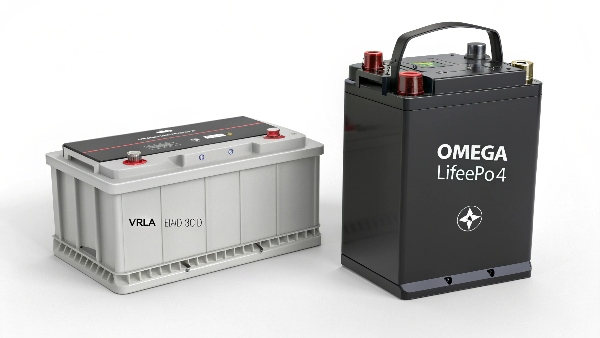
Dive deeper Paragraph:
In the industrial space, the choice really comes down to two technologies: the old standard and the new standard. The old standard is VRLA, or lead-acid. It's heavy, it requires regular maintenance and testing, and it has a short service life of 3-5 years. The new standard is LiFePO4. It's lightweight, requires zero maintenance, and lasts for 8-10 years or more. We built our Omega series around LiFePO4 because it delivers the reliability our industrial clients demand. They need to know that their backup power will work flawlessly when called upon. The extended lifespan is the key. When you realize that a lithium-ion UPS can be used for a long time, the economic and operational benefits become obvious. You avoid the cost and disruption of replacing batteries every few years. The table below makes the choice clear.
| Feature | VRLA Lead-Acid | Omega LiFePO4 Lithium |
|---|---|---|
| Service Life | 3–5 Years | 8–10+ Years |
| Maintenance | Required | None |
| Weight | Very Heavy | Up to 60% Lighter |
| Safety | Risk of gas/leaks | Thermally Stable, No Leaks |
| Total Cost | High (with replacements) | Low (one-time investment) |
Conclusion
An Omega lithium-ion UPS is a reliable long-term investment. Its superior LiFePO4 technology and smart BMS ensure a decade of maintenance-free performance, protecting your critical systems and budget.
-
Understanding UPS systems is crucial for ensuring reliable power backup solutions. Explore this link to learn more about their functionality and benefits. ↩
-
Dive into the intricacies of charging circuits to grasp their importance in UPS systems and battery safety. This knowledge is vital for effective power management. ↩

